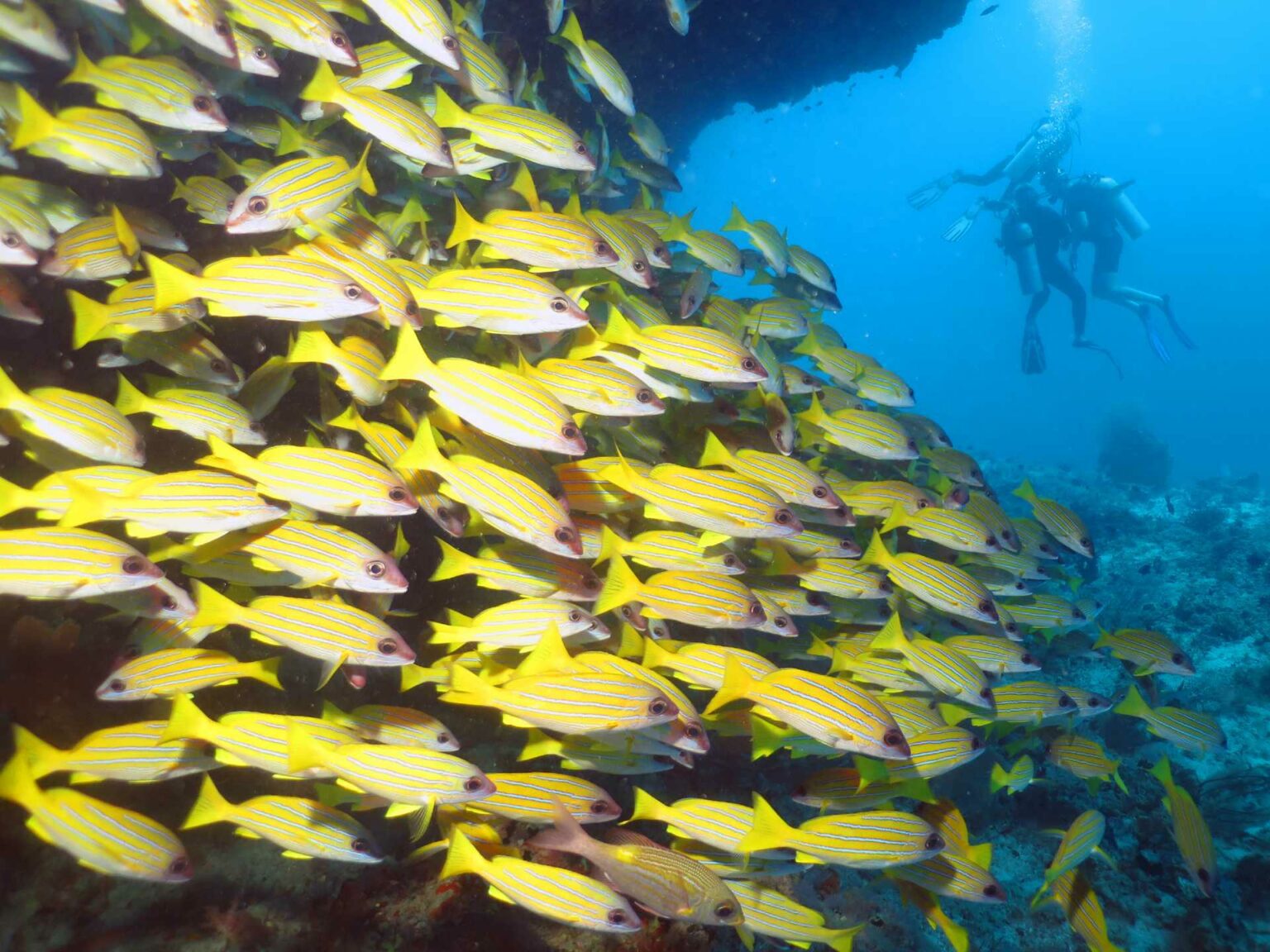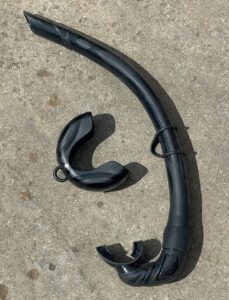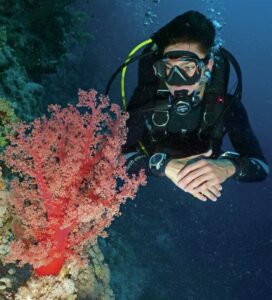Surprising new research has found that fish swim in schools not simply because there is less chance of being picked out by a hungry predator, but because they are able to get that cover without making any more attention-grabbing noise than if they were swimming alone.
This team ability means that fish schools are so stealthy that a predator in the vicinity but unable to see could easily mistake a school for a single fish, or vice versa.
And engineers at Johns Hopkins University in Baltimore, USA have worked out how schooling fish achieve this usefully confusing effect – and believe their discovery has significant implications for designing and operating quieter submarines and AUVs.
The team produced 3D simulations of common mackerel, alone or in schools of up to nine fish. “It’s widely known that swimming in groups provides fish with added protection from predators, but we questioned whether it also contributes to reducing their noise,” says senior author Rataj Mittal.
“Our results suggest that the substantial decrease in their acoustic signature when swimming in groups, compared to solo swimming, may indeed be another factor driving the formation of fish schools.”
Tail-flap timing
The researchers were able to vary the simulated fish formations, how closely they swam next to one another and the extent to which their movements were synchronised.
The model is not peculiar to mackerel but applies to other fish that propel themselves using their tail fins – and the main key to sound reduction in schools was the timing of the tail-flapping.
If schooling fish flapped their tails at the same time, the sound would accumulate – but if they alternated the flaps the additional sounds were cancelled out to the extent that a school of seven fish could sound no louder than a single one.
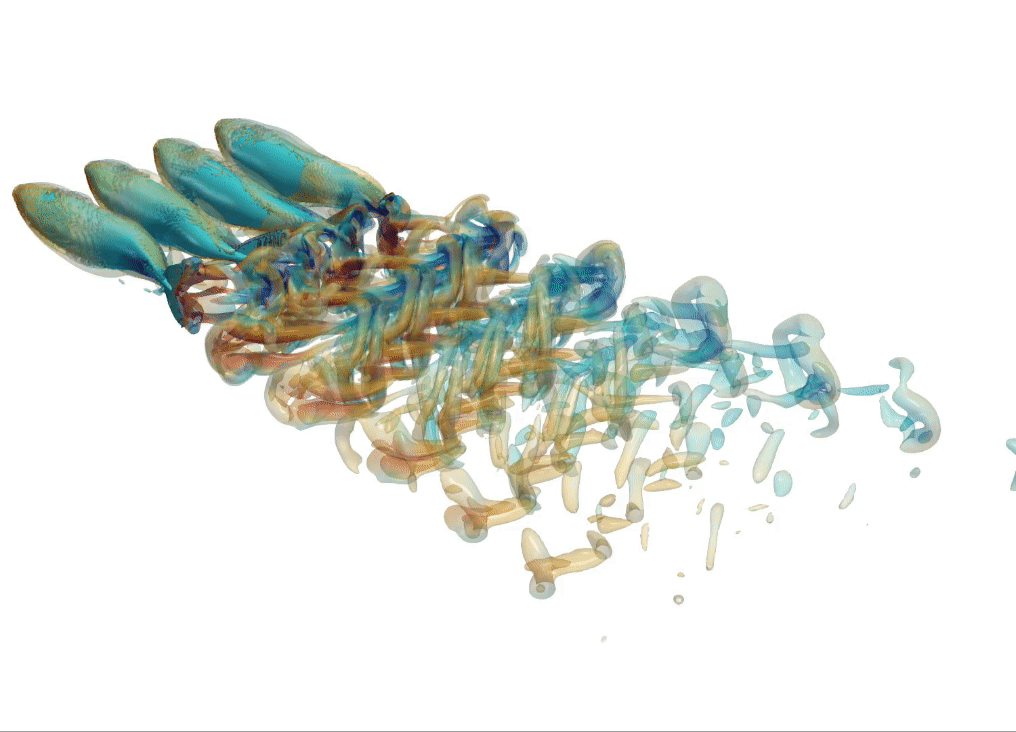
“Sound is a wave,” explains Mittal. “Two waves can either add up if they are exactly in phase or they can cancel each other if they are exactly out of phase. That’s kind of what’s happening here, though we’re talking about faint sounds that would barely be audible to a human.
“A predator, such as a shark, may perceive it as hearing a lone fish instead of a group. This could have significant implications for prey fish.”
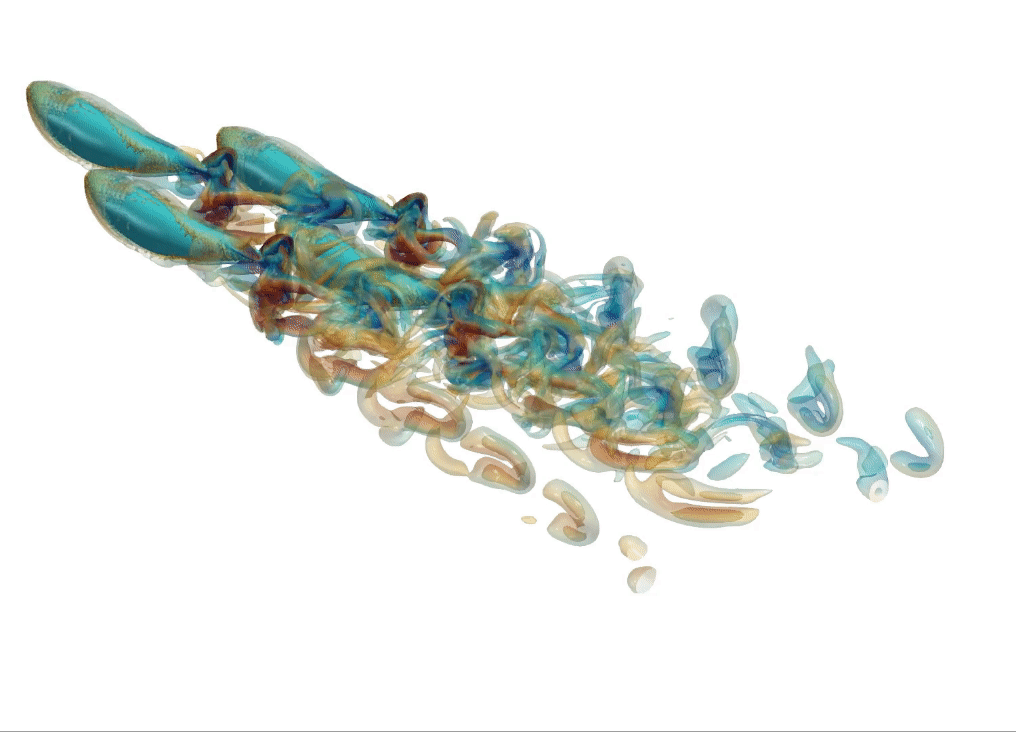
Co-ordinated tail-flapping is not vital, however: “Simply being together and swimming in any manner contributes to reducing the sound signature,” reports Mittal.
Flow interaction
Besides reducing sound, the tail-flapping also generates “flow interaction” between the fish, allowing them to swim faster but use less energy. “We find that reduction in flow-generated noise does not have to come at the expense of performance,” says lead author and Johns Hopkins graduate student Ji Zhou.
“We found cases where significant reductions in noise are accompanied by noticeable increases in per capita thrust, due to the hydrodynamic interactions between the swimmers.”
Fish schools’ sound-reduction benefits kick in the minute two swimming fish join forces, the team found, with noise reduction growing as more fish join a school, though there is thought to be a point beyond which the benefits might fall away.
The researchers, who plan next to add ocean turbulence into their models and create simulations that allow the fish to swim more freely, have just had their study published in Bioinspiration & Biomimetics.
Also read: Back To School Of Fish
